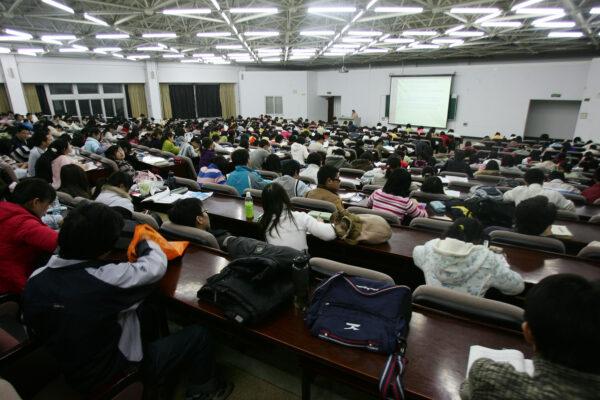The Chinese communist regime has terminated 286 of its Sino-foreign college programs in which Chinese students could study overseas to obtain a diploma.
The announcement was reported by Chinese state-run media on Aug. 15, two weeks before the new academic year starts in China on Sept. 1.
These programs allowed Chinese high-school and university graduates a chance to study at the foreign university for a defined period of time, usually up to two years after enrolling.
From the published list, 30 universities that were involved in 41 programs were from the United States, such as the master’s degree in Electronic and Computer Engineering between Georgia Institute of Technology and Shanghai Jiaotong University, and the master’s degree in Telecommunications Management between Stevens Institute of Technology and Beijing Institute of Technology.
China affairs commentators believe the move is part of Beijing’s campaign to tighten its control in the education sector.

“The Chinese regime can achieve two goals from this partial clampdown on college cooperation programs,” Tang Jingyuan, U.S.-based China affairs commentator, told The Epoch Times on Aug. 16. “First, the related foreign education materials and foreign ideologies can’t enter China. Second, a large number of students can’t go overseas to study via these programs.
Centralized Control of Curriculum
An Aug. 15 report by Chinese state-run Modern Education News explained four new measures that the Education Ministry will now use to control Sino-foreign cooperation in education.The report said that Beijing now requires that all Sino-foreign cooperation education programs provide their information to the ministry’s Chinese-Foreign Cooperation in Running Schools Platform. The ministry will also set up a diploma verification platform, which will be the only official database of licenses and diplomas issued under the Sino-foreign education programs, and introduce a mechanism to evaluate the “quality of education” of these programs, the report said. It added that the ministry would outline administrative rules to govern the programs.
From the terminated programs list, 73 of the programs were cooperations with British universities; 53 with Russian universities; and 50 with Australian universities.
The 30 American universities involved are Georgia Institute of Technology, Stevens Institute of Technology, Florida International University, University of Florida, George Mason University, New York University, The University of Utah, Utah State University, Maharishi University Of Management, Rutgers (The State University of New Jersey), New Jersey Institute of Technology, The State University of New York at Stony Brook, Ohio University, Wright State University, The University of North Carolina at Pembroke, Southern Polytechnic State University, University of Michigan–Dearborn, Central Michigan University, Michigan State University, San Diego State University, University of San Francisco, University of Houston, University of Indianapoli, Pittsburg State University, Western International University, City University of Seattle, Auburn University at Montgomery, Keuka College, Erikson Institute, and University of Minnesota.
Universities from France, Canada, Hong Kong, Germany, Ireland, Netherlands, New Zealand, Sweden, Belgium, Italy, Portugal, Ukraine, and South Africa were also among those with terminated programs.






Friends Read Free